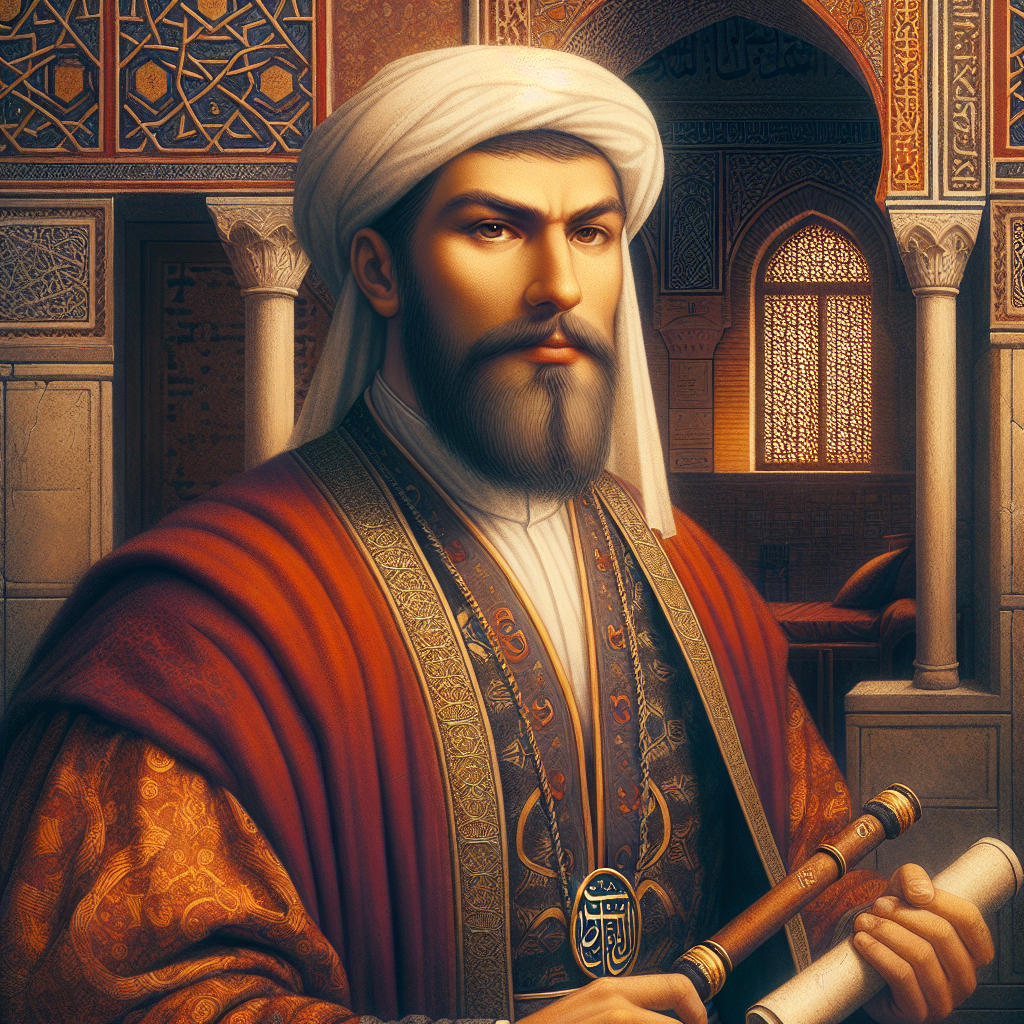Osman Ghazi, the esteemed founder of the Ottoman Empire, stands as a towering figure in history. His legacy is not only etched in the annals of military conquests and strategic brilliance but also in the spiritual and legal framework he established. Faith played a central role in shaping both the governance and legal structures of this burgeoning empire. For history enthusiasts, understanding Osman Ghazi’s religious convictions offers a fascinating glimpse into the formation of Ottoman law.
Osman Ghazi’s Religious Background
Osman Ghazi grew up in a Muslim household where Islamic teachings were an integral part of daily life. This environment instilled in him a profound respect for religious principles, which would later influence his approach to governance. His upbringing laid the foundation for a ruler who sought to integrate faith with statecraft, ensuring that his rule would be guided by principles of justice and righteousness.
Sufi mysticism, with its emphasis on spirituality and personal connection to God, further shaped Osman’s beliefs. Sufism, a mystical branch of Islam, influenced Osman’s vision of leadership, emphasizing compassion, humility, and a commitment to the welfare of his subjects. These values became cornerstones of his governance philosophy, shaping a ruler who valued not just power, but moral integrity.
Osman’s faith was not just a personal belief but a guiding vision for a just and unified society. He envisioned a realm where Islamic principles informed laws, governance, and social relations, creating a harmonious and equitable society. His belief in the divine mandate to rule with justice and fairness resonated through the legal innovations he championed.
The Influence of Islamic Law (Sharia)
Sharia, the Islamic legal framework, holds immense significance in Islamic governance. Derived from the Quran and Hadith, Sharia encompasses a comprehensive system of law that governs personal, social, and political aspects of life. For Osman, Sharia was not simply religious doctrine; it was the foundation upon which to build a just and moral society.
Osman Ghazi was committed to implementing Islamic law as the bedrock of the Ottoman Empire’s legal system. This commitment was evident in his efforts to ensure that the governance of newly conquered territories was firmly rooted in Sharia principles. By doing so, Osman sought to establish a legal system that embodied fairness, justice, and adherence to divine commandments.
The incorporation of Sharia into governance ensured that Islamic principles guided the administration of justice in the empire. This was particularly crucial in newly conquered regions, where establishing legitimacy and stability required a coherent and respected legal framework. By rooting the legal system in Sharia, Osman fostered a sense of unity and purpose among diverse communities.
Legal Framework Established by Osman
Osman Ghazi’s expanding empire necessitated a robust legal framework to govern the diverse territories under his control. To address this challenge, Osman established a dual legal system that combined Sharia law with customary (kanun) laws. This innovative approach allowed for the integration of universal Islamic principles with local customs and traditions.
The establishment of local judges, or qadis, was a pivotal aspect of Osman’s legal framework. Qadis were tasked with enforcing Islamic law and administering justice in accordance with Sharia principles. This system ensured that legal disputes were resolved fairly and consistently, reinforcing the legitimacy of Osman’s rule and fostering stability in his domains.
Osman’s legal framework was characterized by its adaptability and inclusivity. By respecting local customs while upholding Islamic law, Osman created a legal system that resonated with diverse communities. This approach not only facilitated governance but also laid the groundwork for a more centralized and organized legal system in subsequent periods of the empire.
Osman Ghazi’s Role as a Just Ruler
Justice and fairness were hallmarks of Osman Ghazi’s rule. His approach to governance was characterized by a commitment to equity, ensuring that all subjects, regardless of their background, were treated with dignity and respect. This dedication to justice earned Osman widespread admiration and loyalty among his people.
Consultative governance was a key aspect of Osman’s leadership style. He valued the insights and expertise of religious scholars and elders, relying on their counsel in decision-making processes. This collaborative approach not only enhanced the quality of governance but also reinforced the importance of community involvement in shaping policies and laws.
Osman’s reputation for justice and fairness was instrumental in fostering loyalty and stability within his empire. By ruling with integrity and adhering to Islamic principles, Osman cultivated a sense of trust and respect that transcended ethnic and religious boundaries, creating a cohesive and harmonious society.
Religious Tolerance and Governance
Osman Ghazi’s policy of religious tolerance laid the groundwork for a multi-ethnic, multi-religious Ottoman Empire. While firmly rooted in Islamic principles, Osman’s governance approach recognized the importance of respecting and accommodating diverse beliefs and practices. This inclusivity was a hallmark of his leadership.
Christian populations under Osman’s rule were treated with respect and integrated into Ottoman society. The establishment of a framework for interfaith relations allowed for peaceful coexistence and mutual understanding, fostering a sense of community among diverse religious groups.
Osman’s approach to governance was a testament to the power of religious tolerance in building a cohesive society. By valuing diversity and promoting dialogue, Osman created an environment where different cultures and faiths could thrive together, contributing to the richness and resilience of the Ottoman Empire.
The Role of Sufism in Shaping Ottoman Law
Sufi orders played a significant role in shaping both Osman’s spiritual and legal philosophy. The values espoused by Sufism, such as tolerance, compassion, and humility, were integral to Osman’s approach to governance and law. These principles were woven into the fabric of the legal framework he established.
Sufi leaders often served as mediators and advisors in legal matters, reinforcing Islamic principles and ensuring that justice was administered with empathy and understanding. Their involvement in the legal system provided a unique perspective that enriched the administration of justice and governance.
The integration of Sufi values into the legal framework contributed to the development of a more compassionate and humane approach to governance. By embodying Sufi teachings, Osman reinforced the importance of ethical leadership and created a legal system that prioritized the well-being and dignity of all subjects.
Osman’s Legacy and the Evolution of Ottoman Law
Osman Ghazi’s foundational principles left an indelible mark on subsequent Ottoman rulers. His commitment to justice, Islamic principles, and governance laid the groundwork for the development of a more centralized and organized legal system in later periods of the empire.
Under successors like Orhan Ghazi and Murad I, the legal framework continued to evolve, incorporating codified laws (kanun) alongside Islamic law. This development reflected the growing complexity and diversity of the empire, allowing for a more nuanced and adaptable legal system.
Osman’s vision for a just and unified society continued to influence the legal practices of the Ottoman Empire for centuries. His legacy serves as a testament to the enduring power of faith and justice in shaping the course of history and governance.
Conclusion
Osman Ghazi’s faith played a pivotal role in shaping the legal foundations of the Ottoman Empire. His commitment to Islamic principles, justice, and governance created a lasting legacy that influenced subsequent generations of rulers. Osman’s approach to law and governance reflects the broader context of Islamic history and underscores the importance of ethical leadership in building cohesive and prosperous societies. For history enthusiasts, Osman’s story offers valuable insights into the intersection of faith, law, and governance, and its enduring impact on the world.
Read More :: Read More Osman Ghazi Blog.
Osman’s Dream: The History of the Ottoman Empire
A books on Osman Ghazi, the Ottoman Empire, and related historical themes available on Amazon that may interest you:
Author: Caroline Finkel
Link: Osman’s Dream








